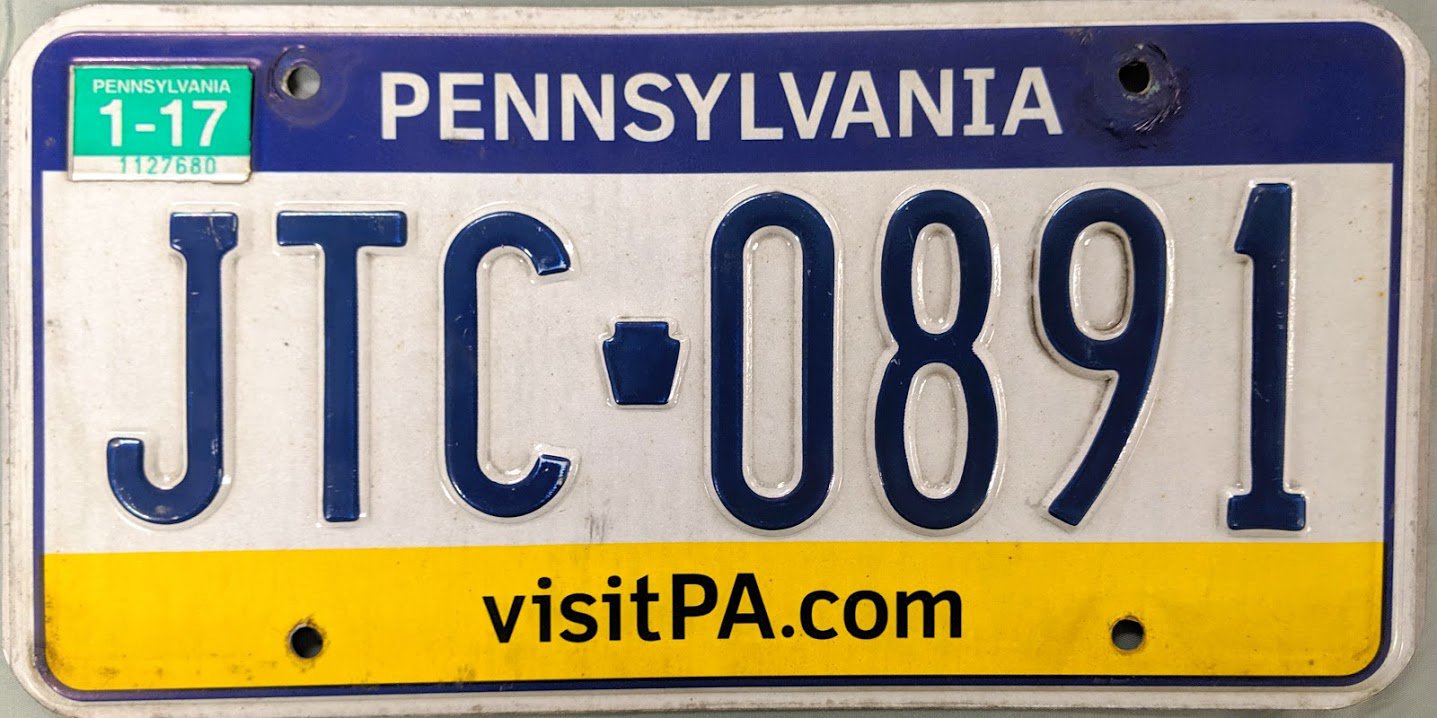Vehicle Registration and Identification

Pennsylvania license plate – Pennsylvania has a comprehensive system for registering and identifying vehicles. The Pennsylvania Department of Transportation (PennDOT) issues license plates to all registered vehicles in the state. These license plates serve as a unique identifier for each vehicle and provide important information about the vehicle’s registration status.
There are several different types of license plates issued in Pennsylvania, including passenger plates, commercial plates, and specialty plates. Passenger plates are issued to private vehicles, while commercial plates are issued to vehicles used for business purposes. Specialty plates are available for a variety of interests and causes, and a portion of the proceeds from the sale of these plates goes to support specific organizations or initiatives.
Pennsylvania license plates have been around for decades, but the state recently introduced a new design. If you’re looking to get a new PA license , you’ll need to visit your local PennDOT office. The new plates feature a blue and white design with the state’s keystone logo in the center.
They also have reflective lettering and numbers for increased visibility at night. The new plates are a welcome update to the state’s license plate design, and they’re sure to be a popular choice for drivers.
Format and Design
Pennsylvania license plates are typically made of aluminum and measure 6 inches by 12 inches. The plates feature a blue background with white lettering and numbers. The format of the license plate number varies depending on the type of plate, but most plates include a combination of letters and numbers. Some specialty plates may also include a unique design or logo.
One unique feature of Pennsylvania license plates is the use of reflective sheeting. This sheeting makes the plates easier to read at night, which helps to improve safety. Pennsylvania license plates also include a security feature that helps to prevent counterfeiting.
Pennsylvania license plates, a symbol of identity for vehicles in the Keystone State, may require renewal or replacement from time to time. For those seeking information on obtaining a new PA license , comprehensive resources are available online. The process involves submitting an application, providing necessary documents, and fulfilling any applicable fees.
By following the established guidelines, individuals can ensure a smooth and timely transition to their new Pennsylvania license plate.
Plate Customization and Fees: Pennsylvania License Plate

In Pennsylvania, you have the option to personalize your license plate with a combination of letters, numbers, and symbols. You can also choose from a variety of specialty license plates that support specific organizations or causes.
To obtain a personalized or specialty license plate, you must submit an application to the Pennsylvania Department of Transportation (PennDOT). The application fee is $35, and there is an annual renewal fee of $20. You can also choose to pay an additional fee to have your license plate personalized with a specific design or message.
Personalized License Plates
Personalized license plates allow you to create a unique combination of up to seven characters. You can choose from letters, numbers, and spaces, but you cannot use any special characters or symbols. The cost of a personalized license plate is $35, plus an annual renewal fee of $20.
Specialty License Plates
Specialty license plates are available for a variety of organizations and causes, including colleges and universities, military branches, and charitable organizations. The cost of a specialty license plate varies depending on the organization or cause, but the annual renewal fee is $20.
Fees
- Application fee: $35
- Annual renewal fee: $20
- Personalized license plate fee: $35
- Specialty license plate fee: Varies depending on the organization or cause
Regulations and Enforcement

In Pennsylvania, the use of license plates is strictly regulated to ensure vehicle identification and compliance with state laws. These regulations aim to maintain order on the roads, facilitate law enforcement, and deter vehicle-related crimes.
Driving with expired or invalid license plates is a violation of state law and can result in penalties. Expired plates indicate that the vehicle has not been registered or inspected, which poses safety and legal concerns. Invalid plates may be stolen, forged, or belong to a different vehicle, raising suspicion of criminal activity.
Role of Law Enforcement, Pennsylvania license plate
Law enforcement officers play a crucial role in enforcing license plate regulations. They conduct routine traffic stops to check for valid plates, registration, and other vehicle documents. Officers may issue citations or warnings to drivers with expired or invalid plates, and in severe cases, they may impound the vehicle until the issue is resolved.